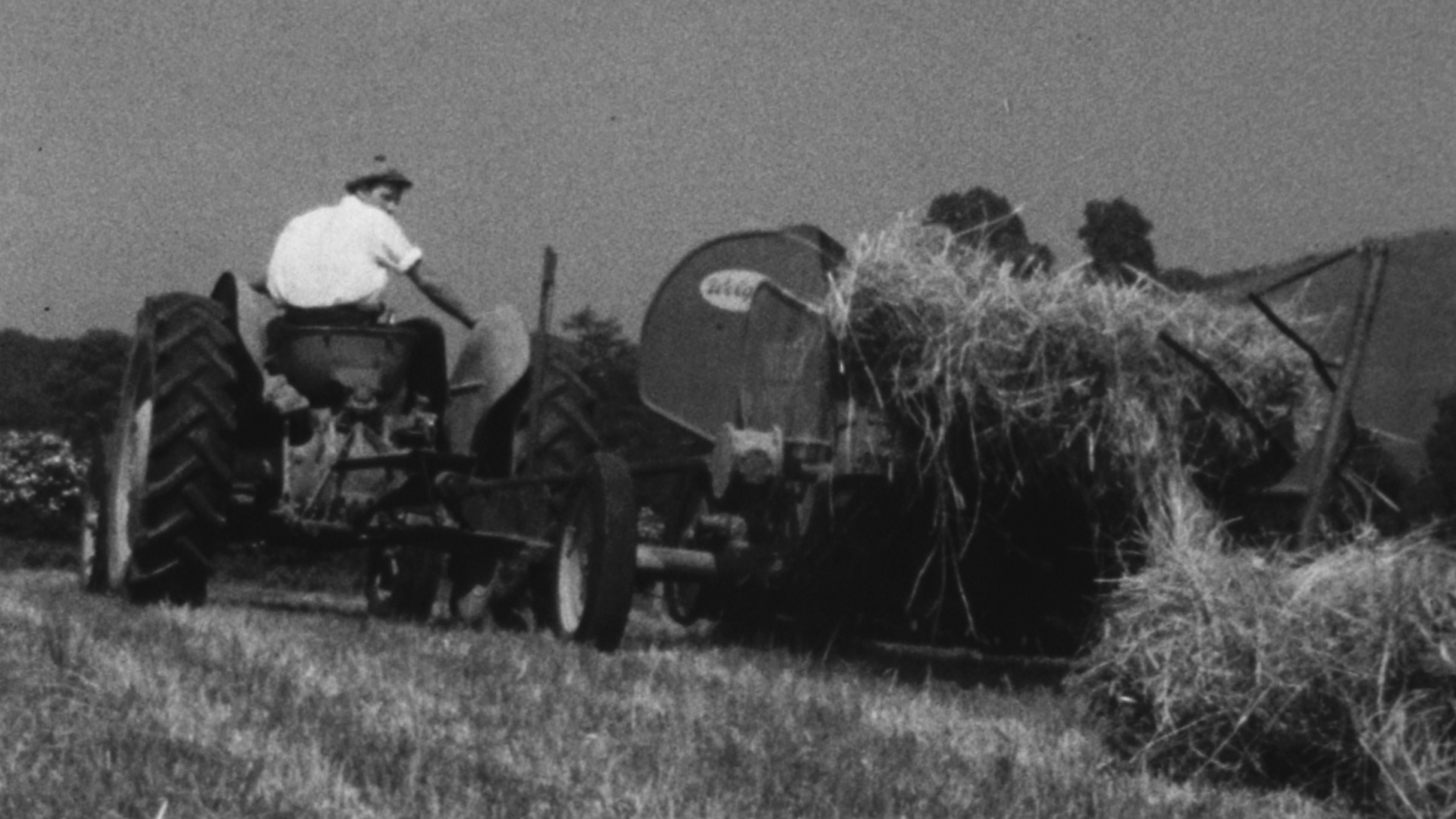
Free 14-day trial, then just £6.99 per month.
Please enter a valid email address
By entering your email address you are indicating that you have read and agree to the terms of use and privacy policy.
Free 14-day trial, then just £6.99 per month.
Horses for courses and different balers for different bales. At Maesmawr Hall, a Welger produces very loose bales, a Jones very compact ones.
It is dry, thirsty work, this hay-making, which is a blessing as rain at such a time can be disastrous. Two balers – and a side rake which arranges the hay in rows for the baler to pick up – are out in the sunshine at Maesmawr Hall farm, near Welshpool, home of the Trants. One, a Welger produces very loose bales which are pitch-forked onto a trailer and then into a large barn; the other, a Jones (manufactured in Mold – see title 'Golden Harvest'), produces very tightly packed bales.
Ion Trant of Dovea Farm, Tipperary, Ireland, studied agriculture in Canada and then took up a post at the Welsh Plant Breeding Station, Aberystwyth, where he met his future wife, Janet Owen of Maesmawr Hall, Welshpool, both of them working on improved grasses for upland farms with George Stapledon. The Trants farmed at Maesmawr Hall, the adjoining farm Cefn Du, and Esgairdraenllwyn at Llaithddu, Llandrindod, where Janet bred Welsh Black cattle crossed with Herefords. Ion created the "Country Close-Up" series for children (BBC 1956-62) – an extract seen here without live narration - to foster an understanding of the countryside. As John Kerry, he wrote a column for the Montgomeryshire Express.